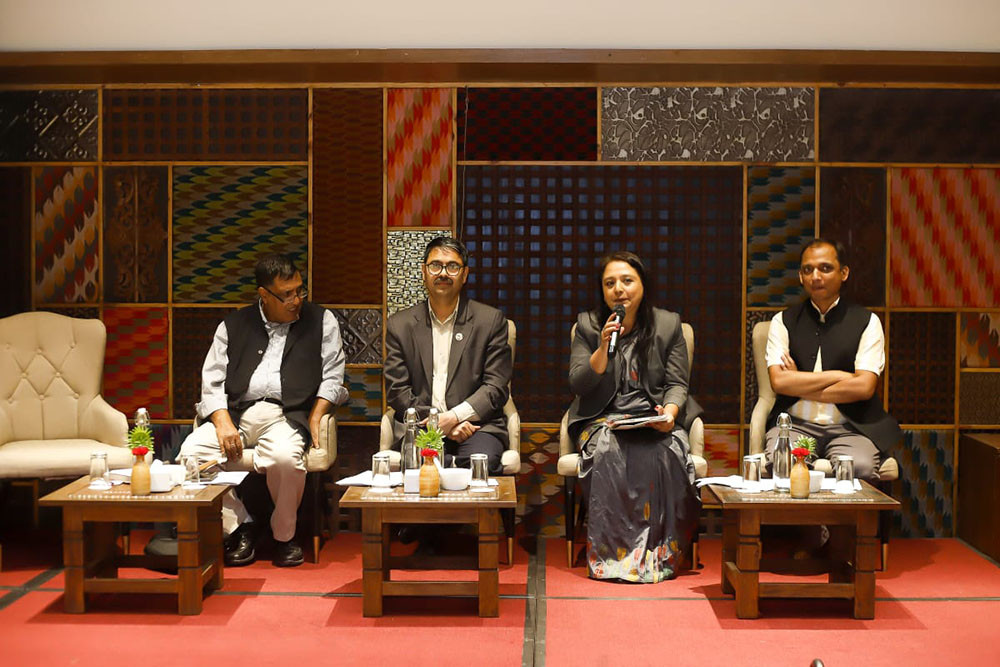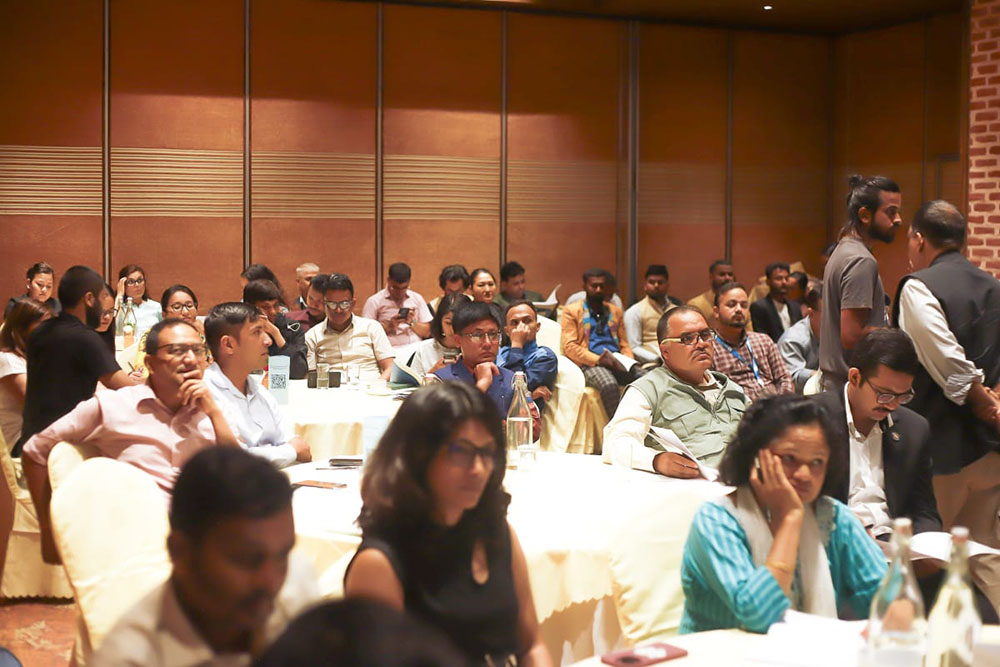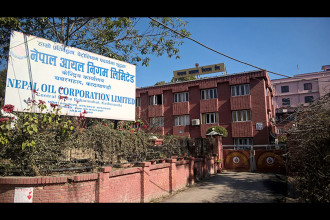
KATHMANDU: Centre for Social Change (CSC), a non-profit making social think-tank based in Kathmandu, on Friday hosted an interactive programme 'National Dialogue on Governance Conflict in Federal Context'.
CSC Executive Director, Prakash Bhattarai, and Research Coordinator Shradha Khadka made presentations to share the findings of 'Quest For Peaceful Governance: An Analysis of Governance Conflicts in Federal Nepal', a report recently published by CSC.
[gallery link="file" size="full" columns="1" ids="39730,39644,39643"] During the presentation, Research Coordinator Khadka elaborated on conflicts in four different areas of governance — Natural resources, Development Ethnocultural and Political. She said most of the civic movements concentrated around political conflicts as public needs and demands were politicised. The further delay caused by governance processes to address citizens’ demands deepened the clutch of political agendas into development and civic spaces, she added. Elaborating on the CSC report, Khadka said political conflicts showed more tendency of turning violent due to pre-conceived prejudices against the opposing parties.
During the presentation, she said that constant occurrences of disagreement, ambiguity and lack of responsiveness have widened the gaps in coordination and communication between the three tiers — federal, provincial and local — of government. According to the report published by CSC, the concerted efforts from political leaders, civil society organisations, and the general public are essential to overcome the challenges and build a more resilient and effective political system.
[gallery size="full" link="file" columns="1" ids="39650"] Hari Sharma, Executive Director, Purak Asia; Khim Lal Devkota, National Assembly member; and Scheme Shrestha, Joint Secretary and Division Chief at Federal Affairs Division, Ministry of Federal Affairs and General Administration (MoFAGA) were the panellists in a discussion moderated by CSC Executive Director Bhattarai. Panellist Shrestha opined that the conflicts ongoing in the country reflect the need for proper cooperation, coordination and collaboration among different levels of governance to ensure uniform policies and avoid irregularities in the performing of duties. She mentioned that the laws in the country are not timely which has had a negative impact on service delivery and good governance.
MoFAGA Joint Secretary Shrestha said we are all responsible for inspiring federalism and stressed the need for self-correction and reform from within rather than blaming others. Likewise, panellist Sharma stressed the need to find a new language in politics while categorising the term conflict. He said debate can not be taken as conflict. He said contentiousness and consensus are the two issues that are alive in politics. He mentioned that our constitution is immature and in slow progress and opined that it might take some time to become mature. He blamed the country's political leadership for the failure of the federal system. He said that there was no change in service delivery and opined that lawmakers have now forgotten the values and prime objectives of various movements established before they were elected to the parliament. He suggested decreasing the number of ministries and said 12 ministries and 165 members for the House of Representatives were enough for efficient service delivery.
Sharma suggested that bureaucrats and lawmakers should learn from the past mentioning that politics looks into the future and it takes some time for federalism to bear fruit. Similarly, in the panel discussion, NA member Devkota emphasized the importance of decentralisation and suggested that the federal government should give responsibility and rights to provincial governments. He mentioned that the frequent transfer of government employees has also a negative impact on good governance and service delivery. Devkota stressed the need for strengthening the provincial governments to make federalism effective and efficient. 
During the floor discussion, various lawmakers, political leaders and social society members expressed their views on governance conflict Lawmaker Prakash Adhikari of Janata Samajbadi Party, Nepal (JSP-N) said that there was no real federalism in Nepal and stressed the need for politicians and bureaucrats to move with a different mentality for good governance. He said amendment to the constitution is necessary to address the challenges that have caused regional conflicts. [gallery link="file" size="full" ids="39725,39726,39724"]
Lawmaker Ranju Kumari Jha of (JSP-N) opined that there should be a change in the working style of bureaucrats for good governance. She termed diversity as the beauty of federalism and said that political leaders should have a commitment to good governance.
Abdul Khan of Janamat Party spoke about the advantages of federalism and opined, "The federal system in Nepal will develop over time as we are still in the learning phase."
Bhola Bhattarai, a participant in the programme, said that the local governments should be given responsibilities and rights to strengthen federalism. He opined that social protest should continue for the betterment of society and this also ensures good governance.
CSC, through its recent endeavours, has been continuously studying and monitoring the governance-related conflicts in Nepal with larger on four areas — Natural Resources, Development, Ethnocultural and Political conflicts. CSC has been sharing the findings, learnings and knowledge from the study periodically in the form of reports, infographics, and blog articles via Governance Monitoring Centre (GMC Nepal).
Besides sharing the findings of GMC Nepal’s initiatives, the objective of the interactive programme was to sensitise government representatives, civil society organisations, private sectors, policymakers and relevant stakeholders about the existing as well as potential intergovernmental conflicts and to bring forward its probable solutions. The programme included finding and sharing by CSC from its 12-month-long media monitoring study of governance conflicts.
READ ALSO:


-1772534372.jpeg)

-1772527494.jpeg)
